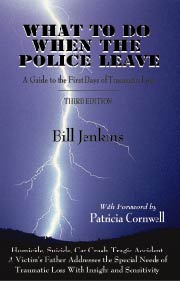Bryan Stevenson is the founder of the Equal Justice Initiative (EJI). Over the years, Stevenson and EJI have become quite well-known and influential. There was even a movie made about them. EJI uses its power and financial resources to advocate for many things, including ending life without parole (often referred to as LWOP) sentences for juveniles (juvenile life without parole is often referred to as JLWOP).
NOVJM recognizes the good work EJI and Mr. Stevenson have done, such as freeing from prison innocent people who were wrongfully convicted. In fact, NOVJM founder Jennifer Bishop-Jenkins worked with Mr. Stevenson in the past to oppose the death penalty (NOVJM as an organization takes no position on capital punishment and our members have different views on the issue). Jennifer considered Stevenson to be a good friend of hers and used to think of him as a man of great principle. This changed in 2012 when she tried to ask him to help victims of juvenile murderers.
Miller v. Alabama was going before SCOTUS and Jennifer made a simple request of Mr. Stevenson. She called him on the phone as a friend and asked him to let her know which states EJI was filing juvenile justice legislation in. This would allow victims to be informed of sentencing changes beforehand so they would not have to endure the trauma that often accompanies sudden changes in the killers’ sentences and unexpected re-engagement with the criminal justice system. She explained to Stevenson that his advocacy on behalf of juvenile murderers would impact victims’ families. Knowing beforehand would allow NOVJM to help victims prepare emotionally for re-engaging with the offenders, which is very painful and agonizing. It was a simple request and she was asking him as a friend.
Mr. Stevenson refused to let Jennifer know what states EJI was trying to make legal changes in. He told her that NOVJM victims were opponents. However, legislation is public information and innocent victims who are affected by it have a right to be informed. NOVJM does not have anywhere near the budget, resources, or power that EJI has. We just wanted to be informed of legislation that could impact us. But Stevenson refused to help and inform us, even though we are the victims of the killers he is trying to free and are significantly impacted by EJI’s actions.
Mr. Stevenson and EJI have also been insensitive to victims’ families by using manipulative and deceptive buzzwords. For example, they refer to juvenile murderers as “children.” The term “child” paints a mental image of teenage murderers that is grossly inaccurate, as explained here and in our SCOTUS brief. They use this offensive term to minimize the seriousness of crimes and create sympathy for the killers. Stevenson writes extensively about juvenile criminals in his influential book Just Mercy. Chapter eight deals with juveniles in adult court, while chapter 14 is about juvenile life without parole sentences. Juvenile criminals, including juvenile murderers, are referred to as “children” and “kids” numerous times throughout the book. We will show just a couple of examples down below. More examples of EJI’s and Mr. Stevenson’s use of the term “child” are listed on the Teen Killers Are Not Children page linked above.
Apparently, Mr. Stevenson and EJI only have mercy and compassion for criminals. While advocating violent criminals, such as the killer who invaded the home of 66-year-old Catherine Haynes and beat and stabbed her to death, they don’t seem to have any interest in allowing innocent victims to have justice.
We ask for EJI and Mr. Stevenson to give us, the victims, what they so often give to convicted robbers, kidnappers, rapists, and murderers–compassion and mercy. The violent juvenile criminals who EJI advocates for chose to get themselves in the positions they are in by committing depraved violent crimes. The victims, on the other hand, did not ask to be kidnapped, tortured, or raped. They did not ask to be murdered. The families did not choose to lose their loved ones to violent criminals. Murder victims’ families have endured the worst trauma possible, inflicted by the offenders EJI supports. We ask that EJI show us something simple-just mercy.
Propaganda Language In Just Mercy
Page 15. “For years, we’ve (the U.S.) been the only country in the world that condemns children to life imprisonment without parole; nearly three thousand juveniles have been sentenced to die in prison.”
Page 266. “Most of the juvenile lifer cases we handled involved clients who shared Evan’s confusion about their adolescent behavior. Many had matured into adults who were much more thoughtful and reflective; they were now capable of making responsible and appropriate decisions. Almost all of the cases involved condemned people marked by the tragic irony that they were nothing like the confused children who had committed a violent crime.” Portraying murderers as “confused children” is very insensitive and inaccurate. The Evan in this case is Evan Miller, who murdered Cole Cannon.
Page 267. “In preparing litigation on behalf of the children we were representing, it was clear that these shocking and senseless crimes couldn’t be evaluated honestly without understanding the lives these children had been forced to endure.” “Children” don’t commit the types of crimes that we acknowledge as “shocking and senseless.” And not all juvenile criminals had disadvantaged lives.
Pages 267-268. “Contemporary neurological, psychological, and sociological evidence has established that children are impaired by immature judgment, an underdeveloped capacity for self-regulation and responsibility, vulnerability to negative influences and outside pressures, and a lack of control over their own impulses and their environment.”
Page 268. “It seemed so odd to have to explain in a court of law something so fundamental about childhood, but the commitment to harsh punishments for children was so intense and reactionary that we had to articulate these basic facts.”
Page 269. “When the basic defects that burden all children are combined with the elements some poor children experience…”
Page 269. “We were able to make persuasive arguments about the differences between children and adults….”
Page 269. “Our litigation strategy was complicated by the fact that more than 2,500 children had been sentenced to life imprisonment without parole. We decided to focus on two subsets of kids to help the Court grant relief if it wasn’t ready to ban all life sentences without parole for juveniles.”
Page 270. “We asked courts to recognize that such a judgment (about juvenile criminals) cannot be rationally passed on children below a certain age because they are unfinished products…”
Page 270. “We emphasized the incongruity of not allowing children to smoke, drink, vote…while simultaneously treating some of the most at-risk, neglected, and impaired children the same way as full-grown adults in the criminal justice system.”
Page 272. “I told the Court that the United States is the only country in the world that imposes life imprisonment without parole sentences on children. I explained that condemning children violates international law, which bans these sentences for children. We showed the Court that these sentences are disproportionately imposed on children of color.”
We address the claims made by Mr. Stevenson about the number of juvenile lifers and the practices of other countries (the U.S. is NOT the only country that has JLWOP) in the pages listed below.
We also explain the problem with calling life in prison sentences “death in prison sentences” here. And we address the ideas that juveniles are categorically less culpable in the following pages.
A volunteer argues against the idea that juvenile murderers are categorically less culpable here.











